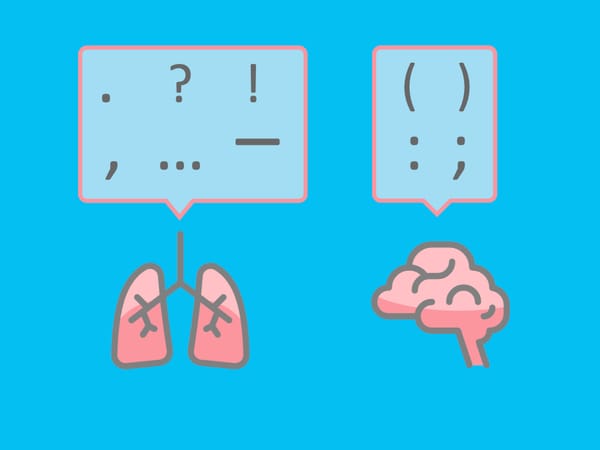Why did the robo-taxi cross the road?

On a recent trip to San Francisco, my brother and I took a Waymo driverless taxi to get to and from a restaurant. I found the experience smooth, seamless...and oddly puzzling.
So let's talk about robot cars and whether they truly are automated harbingers of a coming AI apocalypse. I even brought visual aids!
Let's watch a short movie. Right after the news.
What’s going on?
- It's time for me to leave the Meta ecosystem. So no more Facebook or Instagram. Going forward, the best place to find me will be right here. I also have a Bluesky account (@reqfield.bsky.social) that I'm in the process of figuring out. If you've connected with me on the Facies or the Instas, thanks so much for sharing your stories and photos. And I hope to hear from you soon, here or on Bluesky.
"This experience may feel futuristic..."
So, I'm in San Francisco to visit my brother, Chip. And we decide to get dinner. And my brother says, "Hey, let's call a Waymo."
Waymo is that fleet of self-driving robotaxis that Alphabet (Google) runs in Phoenix, Los Angeles, and San Francisco. I know a lot of people who say they would never get into one of the things. But for me, the opportunity was irresistible.
Chip downloads the Waymo app, and it asks him to log in with his Google account. If you've ever used Uber or Lyft, the experience is pretty much the same. The app says our car will arrive in less than ten minutes.
So we go down to meet it, and right on time, a Jaguar I-PACE battery electric crossover SUV hums to a stop in front of us. Chip's initials are in lights on the roof-mounted sensor package, and there are spinny sensors (sorry to get technical there) on the bumpers at each of the four corners of car.
And there is nobody at the wheel.
Chip gets in the front, I pile into the back, in case there is some control or button you can only reach from one seat. This was us thinking too hard. There's a screen on the dash, and another on the back of the center console, so you can press any of the button thingys (technical jargon again) from any seat.
Chip presses the button thingy to start, and off we go.
Now, come join us in first two minutes of that trip. You can hear the car's own little safety lecture, and then I've annotated points of interest along the way. One thing to listen for: Chip's and my nervous chuckles after the car made its first major turn, the left turn right after we stop for the tram. That was when we realized this thing was really driving:
Then things got weird(er)
One thing that struck me was how quickly we got used to this. For me, once the car safely went around a cyclist in its lane, I really started to relax. Us humans can adapt really quickly to the extraordinary – especially when it's convenient and comfortable (those Jaguars are roomy).
The most surprising moment came for me at the very end of the ride. Have a listen:
"Thank you, robot car?" As much as it was a fun thing to say, it also felt right. Like it would have been wrong to just leave without acknowledging our "driver."
We humans can anthropomorphize anything (Exhibit A: The Brave Little Toaster). And it's hard not to see something that is so seemingly skilled at a complex task as, if not human, then as something.
But what? Whenever I consider questions like this, I always think back to a sci-fi thriller from 1989.
Maybe anthropomorphism isn't the point
Weapon is a novel by Robert Mason, about a humanoid robot with an AI brain developed as a new weapon for the US military. Then it decides it doesn't want to take orders anymore, including to kill, and escapes during an exercise in Central America. The military is rather peeved at this, and pursuit commences. It's fun, well written, and fast paced.
And Mason's endnotes about his research for the book completely changed my view of the possibilities of AI.
For starters, he references this quote from Marvin Minsky, co-founder of the MIT Artificial Intelligence Lab:
The question is not whether intelligent machines can have any emotions, but whether machines can be intelligent without any emotions.
Forget what they taught you at Vulcan Science Academy. Emotions may be necessary for true intelligence. They help us decide what's important. They define our priorities. So AIs will probably need emotions – and those emotions may arise spontaneously as the AIs learn and develop their own world view.
After all, us humans are just big bags of millions of tiny bags of chemical-laden salt water wrapped in semi-permeable membranes, replicating via exchanges of DNA. (Well, that's the gist of our replication. The actual process is a tad more complicated.) Our brains are hideously complex, filled with trillions of electrical connections and awash in neurotransmitters and other chemicals. There is even evidence that the bacteria in our intestines, our gut biome, influences how we think. So we are constantly affected by all these biological needs, which are turn affected by our environment – heck, even the moon tugs at us.
Mason points out that AIs share none of this with us. So when they develop emotions, they won't have our emotions. He comes to a fascinating conclusion:
Having few of our biological imperatives, machine beings would most certainly be different from human beings...(Advances in technology) will one day make possible an encounter with a machine that will claim that it is an "I" and which will exhibit what we call emotions. Further, it will not be artificially intelligent. It will be a different kind of thinking being. It will be more alien than any biological extraterrestrial.
And we already have a hard enough time dealing with our fellow humans...
A ride through the Park
Remember that point near the end of the first video, when my brother started second-guessing the car's choice of route? I think our Waymo probably turned left to go through Golden Gate Park because its algorithms calculated that was the most efficient route for that time of day.
But someday, some future robotaxi going to go through the Park just because it likes going through the Park. And that's when things are going to get really interesting...
Fun facts to know and share

Fast-paced and fun, with an intriguing and sympathetic main character who, while neither exactly a human nor a bot, is definitely a person.

"Electronic games appear to...serve a surprising number of emotional, social, and intellectual needs." Who knew?

Meta's not setting a good example for its AI.

You want different, completely alien thinking? Look underwater.

While I was in San Francisco, we had a little earthquake. This site let me know how big and how far away. Worldwide, continuously updated.
Over to you
I've been approaching AI very tentatively. Some I've been using for years. Most of us have – like automated transcriptions and closed captions, photo background removal tools, or search summarizers like Perplexity. And of course there was That time I asked ChatGPT to rewrite one of my scripts.
AI is all around us in various convenience features. But I really haven't dived into the whole new AI ecosystem.
What about you? Have you been using any AI tools? How's your experience? Any advice to those of us watching from the shore? Let us know in the comments.
Until we talk again, I remain,
Your pal,
Jamie








